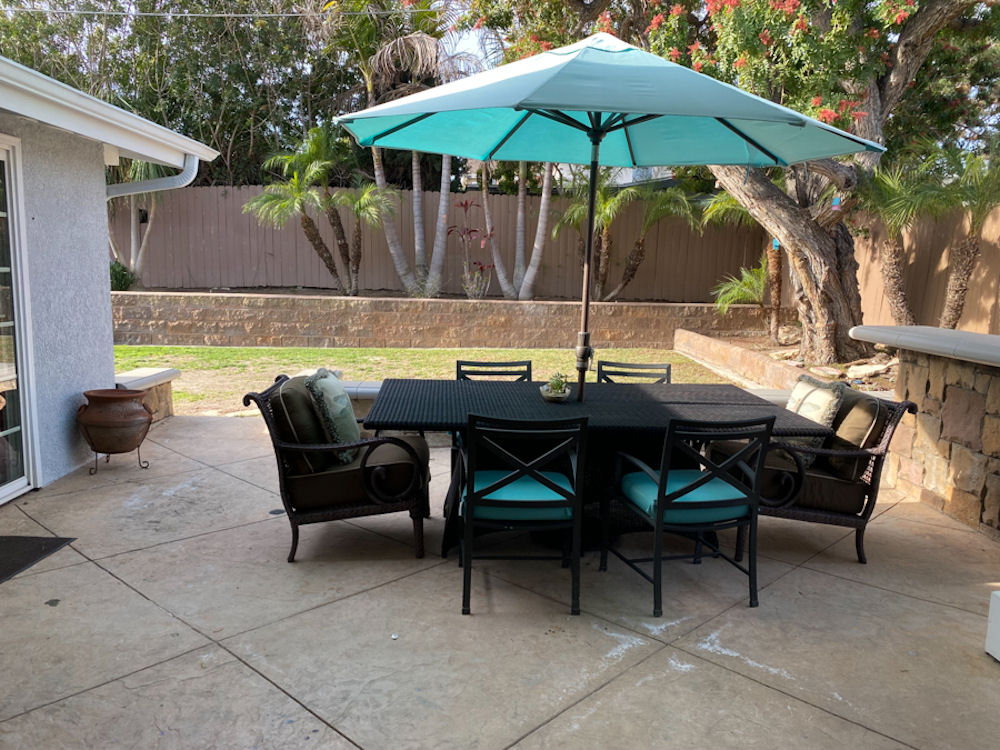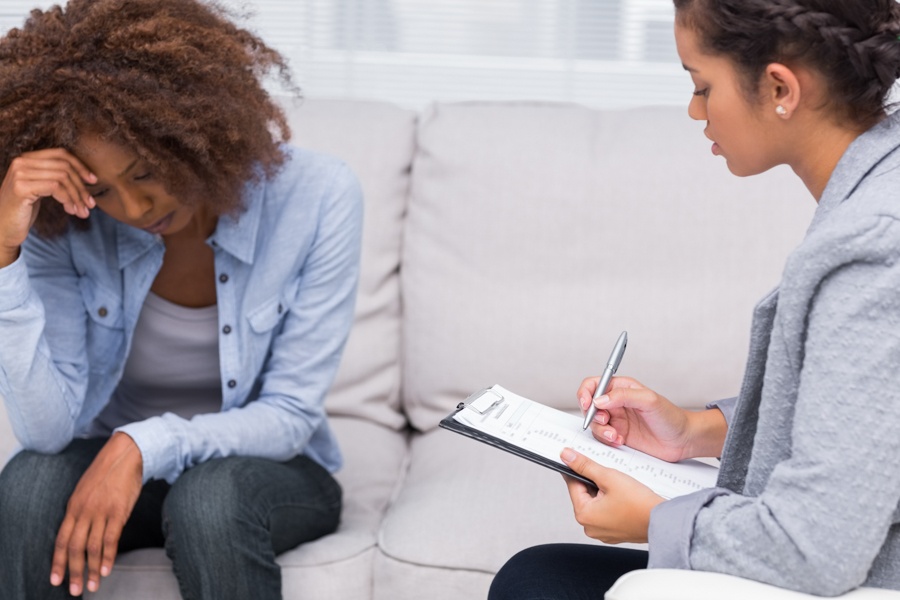Premier Mental Health Treatment in Orange County, Southern California
At Adler Health, we offer quality mental health treatment with you in mind.
Our mental health treatment center provides an individualized, targeted approach to developing your treatment program. We want to let you know that you and your loved ones are not alone in your struggles. At Adler Health, we are working to change the stigma against those individuals suffering from mental health conditions. Mental health affects everyone and statistics show that 1 in 5 people will suffer from a mental illness at some point in their life.
We invite you to get the help you need. Adler Health wants to make sure you are set up for the future and that you are living the best life possible.
Our Southern California-based treatment center in Orange County is a safe and supportive environment that provides all the mental health services you need to reach a better mind, body, and spirit. From our various therapy options to our specialized programs, you are not alone in your journey. Don’t be afraid to reach out to us for more information!

Adler Health Offers Dual Diagnosis in Orange County, California
Adler Health offers dual diagnosis programs in Orange County, California. It is common for a person to struggle with a substance use disorder and a mental health disorder simultaneously. Contact us today to get started with our dual diagnosis program.
Need Help? Contact Us
About Us
What We Treat at Adler Health

Anxiety Treatment in Orange County
While it is normal to feel anxious about certain aspects of life, generalized anxiety disorder is something entirely different. Anxiety is a mental health disorder characterized by excessive worry and fear, so much so that it affects a person’s daily life.
Treatment for anxiety typically includes therapy, medication, or both. Therapy can help people manage their anxiety by teaching them coping and problem-solving skills. Medication can help reduce the symptoms and treat anxiety disorders.

Depression Treatment in Orange County
Depression is a mental health disorder characterized by persistent sadness and loss of interest in activities. Millions of people suffer from clinical depression every year in the United States and abroad. If you or a loved one is showing signs of suicidal thoughts or ideation, reach out for help immediately and let out mental health professional team treat depression.
Treatment for depression typically includes talk therapy, mental health medications, brain stimulation therapies and experiential therapies. Therapy can help people manage their depression by teaching them coping and problem-solving skills. Medication can help reduce the symptoms of depression.

Orange County Trauma Treatment
Post-traumatic stress disorder (PTSD) is a mental health condition that can develop after exposure to a traumatic event, such as war, rape, or a natural disaster. Symptoms of PTSD can include flashbacks, nightmares, anxiety, depression, and difficulty sleeping. Many military veterans tend to experience PTSD in one form or another, however, anyone can develop it.

Bipolar Disorder Treatment in Orange County
Bipolar disorder is a mental health disorder characterized by episodes of mania and depression. Symptoms of mania can include increased energy, irritability, racing thoughts, and impulsive behavior. Symptoms of depression can include fatigue, sadness, and difficulty concentrating. Treatment for bipolar disorder typically includes medication, therapy, or both. Medication can help stabilize mood swings. Therapy can help people manage their mental health problems by teaching them coping and problem-solving skills.

OCD Treatment in Orange County
Obsessive-compulsive disorder (OCD) is a mental disorder that causes people to have intrusive, unwanted thoughts (obsessions) and to perform repetitive behaviors (compulsions) in an attempt to relieve anxiety. OCD affects about 2.2 million adults in the United States. Treatment for OCD typically includes medication and exposure and response prevention therapy.

Borderline Personality Disorder Treatment in Orange County
Borderline Personality Disorder is characterized by impulsivity and instability in relationships, mood, and self-image. People with this disorder may have intense but short-lived relationships with others. They may also display extreme swings in their emotions and moods and have a fear of abandonment.
Treatment for BPD may include dialectical behavioral therapy, medication, and/or hospitalization. Treatment centers for personality disorder can help people learn how to control their emotions, impulsivity, and self-destructive behaviors. Treatment can also help them build healthier relationships.
- Anxiety
-

Anxiety Treatment in Orange County
While it is normal to feel anxious about certain aspects of life, generalized anxiety disorder is something entirely different. Anxiety is a mental health disorder characterized by excessive worry and fear, so much so that it affects a person’s daily life.
Treatment for anxiety typically includes therapy, medication, or both. Therapy can help people manage their anxiety by teaching them coping and problem-solving skills. Medication can help reduce the symptoms and treat anxiety disorders.
- Depression
-

Depression Treatment in Orange County
Depression is a mental health disorder characterized by persistent sadness and loss of interest in activities. Millions of people suffer from clinical depression every year in the United States and abroad. If you or a loved one is showing signs of suicidal thoughts or ideation, reach out for help immediately and let out mental health professional team treat depression.
Treatment for depression typically includes talk therapy, mental health medications, brain stimulation therapies and experiential therapies. Therapy can help people manage their depression by teaching them coping and problem-solving skills. Medication can help reduce the symptoms of depression.
- Trauma and PTSD
-

Orange County Trauma Treatment
Post-traumatic stress disorder (PTSD) is a mental health condition that can develop after exposure to a traumatic event, such as war, rape, or a natural disaster. Symptoms of PTSD can include flashbacks, nightmares, anxiety, depression, and difficulty sleeping. Many military veterans tend to experience PTSD in one form or another, however, anyone can develop it.
Treatment for PTSD typically includes medication, therapy, or both. Medication can help reduce the symptoms of PTSD. Therapy can help people manage their PTSD by teaching them coping and problem-solving skills. - Bipolar Disorder
-

Bipolar Disorder Treatment in Orange County
Bipolar disorder is a mental health disorder characterized by episodes of mania and depression. Symptoms of mania can include increased energy, irritability, racing thoughts, and impulsive behavior. Symptoms of depression can include fatigue, sadness, and difficulty concentrating. Treatment for bipolar disorder typically includes medication, therapy, or both. Medication can help stabilize mood swings. Therapy can help people manage their mental health problems by teaching them coping and problem-solving skills.
- OCD Treatment
-

OCD Treatment in Orange County
Obsessive-compulsive disorder (OCD) is a mental disorder that causes people to have intrusive, unwanted thoughts (obsessions) and to perform repetitive behaviors (compulsions) in an attempt to relieve anxiety. OCD affects about 2.2 million adults in the United States. Treatment for OCD typically includes medication and exposure and response prevention therapy.
- Borderline Personality Disorder
-

Borderline Personality Disorder Treatment in Orange County
Borderline Personality Disorder is characterized by impulsivity and instability in relationships, mood, and self-image. People with this disorder may have intense but short-lived relationships with others. They may also display extreme swings in their emotions and moods and have a fear of abandonment.
Treatment for BPD may include dialectical behavioral therapy, medication, and/or hospitalization. Treatment centers for personality disorder can help people learn how to control their emotions, impulsivity, and self-destructive behaviors. Treatment can also help them build healthier relationships.

Adler Health Is Ready to Help
Adler Health is ready to help you and your loved ones towards a better, happier life. Our doors are always open, don’t hesitate to reach out to learn more about our treatment options and what other conditions we treat, we look forward to hearing from you!
Need Help? Contact Us
Personalized Therapy
We provide several different methods of therapy when treating our clients. Some of our more common therapy options include:
Mental Health Treatment Programs in Orange County, Southern California
Each case is different, that is why we offer several different mental health treatment programs to meet all your needs. Our two main treatment programs include inpatient and outpatient treatment. We also offer a dual-diagnosis treatment program for co-occurring mental health disorders. Regardless of which method works best, you will have access to around-the-clock therapists with years of experience. Our team is here to make the process smooth and effective for all our clients.
Inpatient programs, also called residential treatment, offer the highest level of treatment. During your time, you will stay at our clean and comfortable treatment center. Here you will have 24/7 support and a structured environment for routine and long-term success. Treatment time depends on a case-by-case basis but it typically lasts up to 3 or more months.
Outpatient treatment offers more of a flexible schedule and environment than inpatient treatment. Instead of residing in a treatment center, you can go home after your sessions are completed. Weekly visits allow a person to keep up with their daily responsibilities while still getting proper and quality treatment for mental health issues. Outpatient treatment is best for those who have a solid home life and support; it is also better for less severe cases of mental health disorders.

Telehealth Services
Adler Health provides convenient, expert telehealth services for mental health care. Our team of over 30 licensed specialists offers personalized treatment for a wide range of mental health conditions, all from the comfort of your home. After a thorough virtual consultation, necessary medications can be prescribed and delivered right to your doorstep.
Prescription Medications
Adler Health specialists can prescribe medications when appropriate through our telehealth services. If your condition requires a prescription, our licensed providers will handle it directly during your virtual visit. It’s fast, secure, and designed to get you the care you need without the wait. Available prescription medications:
Let Adler Health Serve You!
If you or a loved one is struggling with a mental health disorder or a co-occurring disorder, Adler Health is here for you. Contact us today to learn more about our mental health treatment programs and other resources.
Check out the latest blogs from the team at Adler Health
People experience anxiety after drinking because alcohol is a central nervous system depressant, meaning it slows down brain activity and…
Trauma-informed care is an approach to healthcare that recognizes the widespread impact of trauma on individuals and seeks to provide…
When it comes to supporting your mental health, boundaries play an important role in maintaining a sense of balance and…



